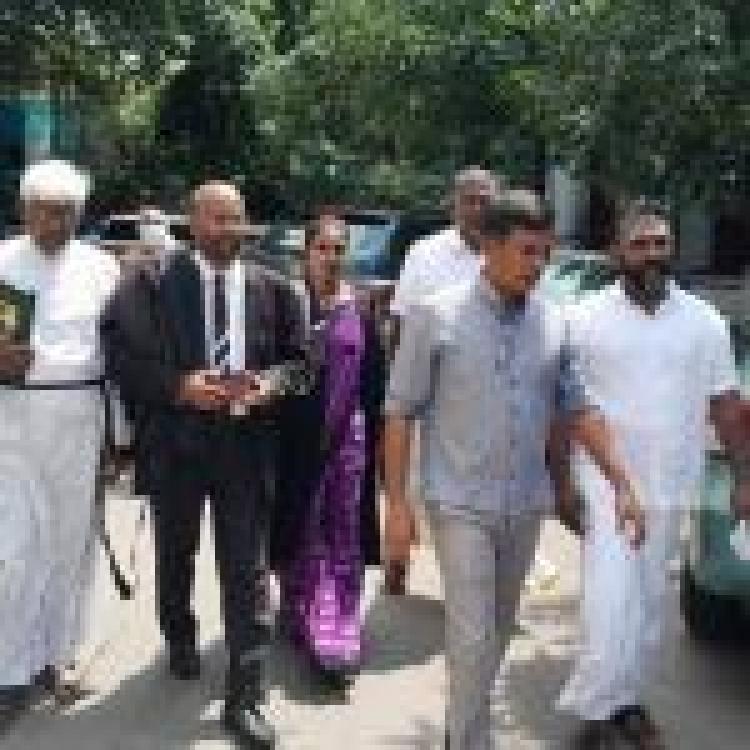.jpg)
Sri Lanka's Justice Minister Vijayadasa Rajapaksa sparked outrage and demands for transparency with a recent assertion that only 14 Tamil political prisoners are currently incarcerated in Sri Lankan jails.
During his visit to Athi Vinayagar Temple in Vavuniya on January 17, Rajapaksa participated in a special pooja and addressed the media. He claimed there were ongoing legal proceedings against the political prisoners and spoke out in defence of a recent military and police operation, allegedly aimed at arresting illegal drug smugglers.
Rajapaksa claimed "strategic measures" have been implemented to curb the sale of drugs and dismantle drug gangs. In the past few weeks, Sri Lanka's Public Security Minister Tiran Alles launched 'Operation Yukthiya', which has seen thousands detaiend across the island and UN criticism of the operation.
.jpg)
The minister confirmed that cases would be filed against those apprehended in such operations aimed at tackling drug-related offenses. He also said that a committee, led by a retired justice, has been appointed to investigate the questions that have arisen regarding the Kandakadu camp, which houses individuals undergoing rehabilitation, persons with substance used disorders allegedly in recovery, and those apprehended in the latest military and police operations. Kandakadu, which has a holding capacity of 500 persons, is one of the main facilities where those apprehended in the Yukthiya operation are being held. Human rights activists have questioned as to how these facilities are keeping up with the influx of detainees.
8/When capacity of Kandakadu and Senapura is 500 persons each, and they housed 336 and 485 respectively on 15 Dec 2020, how are 1810 persons sent to rehab in last month being housed at these centres? If they are not being held at these centres, then where are they being held?
— Ambika Satkunanathan (@ambikasat) January 18, 2024
The Minister's claim regarding political prisoners also drew scrutiny from locals. Stating that only 14 political prisoners remain in custody, with ongoing court cases, raises questions about the definition of political prisoners and the transparency of the legal proceedings on the island. Critics argue that the government should provide detailed information on these cases, given the historical context and international concerns about human rights in Sri Lanka, particularly the treatment of prisoners in prison, in the legal justice system, and the overcrowding of prisons.
It is unknown how many continue to be detained, but lawmakers claim hundreds of Tamil political prisoners continue to languish in Sri Lankan prisons under the act.
.jpg)

